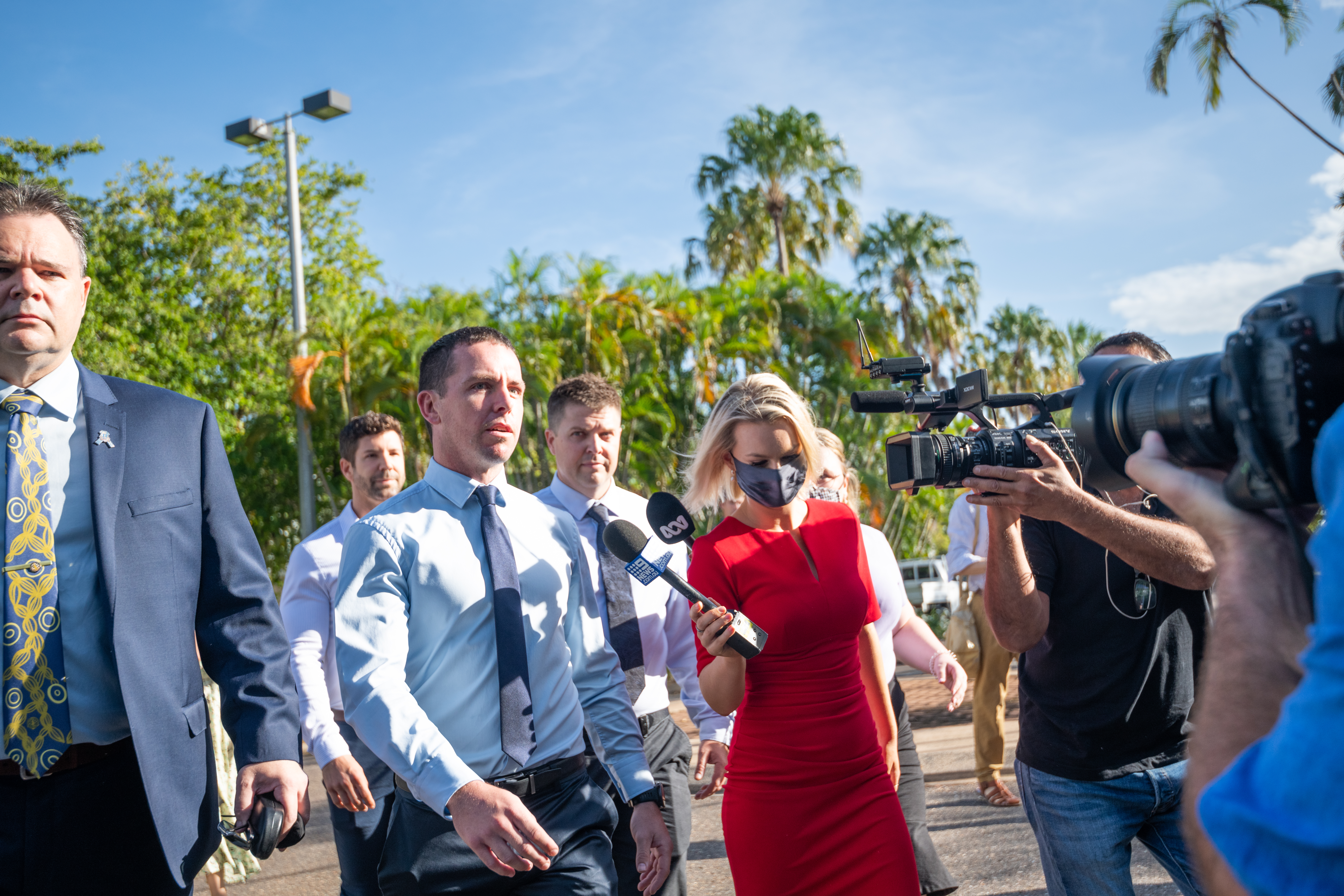After a series of twists and turns over the past two years, the trial of Zachary Rolfe has finally begun in the Supreme Court in Darwin.
The Northern Territory police officer is accused of murdering 19-year-old Kumanjayi Walker during an attempted arrest in Yuendumu – a remote community 300 kilometres northwest of Alice Springs.
If found guilty by a jury, the 30-year-old faces a mandatory sentence of life imprisonment.
READ MORE: Australia's border reopening to reinvigorate struggling tourism industry
Prosecutors allege Mr Rolfe deliberately shot Kumanjayi Walker three times.
Philip Strickland SC told the jury it was the Crown's case that when Rolfe fired the second and third shots at point blank range, he intended to kill, or at the very least cause serious harm.
"This rapid discharge of shots with a semi-automatic gun is sometimes called a 'double tap' in police and military circles," he said.
"It is designed to ensure maximum injury or death.
"As at the time of the shooting, he had extensive experience in handling firearms and weapons.
"But he had limited experience performing police duties in a remote Indigenous community, such as Yuendumu."
In the Crown's opening address, the jury was played body-worn footage of the incident, in which Mr Rolfe could be heard saying he had been stabbed.
READ MORE: Western Australia eases COVID-19 and close contact isolation rules
The Constable told media outside court that he felt confident about the trial. The defence previously indicated it would rely on self-defence.
The jury was also shown vision of Kumanjayi Walker pulling an axe on officers who had attempted to arrest him three days earlier.
The court heard Mr Walker had breached a court order requiring him to live at an alcohol rehabilitation centre in Alice Springs.
Yuendumu spokespeople addressed media after the first day of the trial had concluded.
Ned Jampijinpa Hargraves said the community was very "angry" and "hurting".
Lindsay Japangardi Williams said they had travelled a long way and wanted justice for their family.
The trial is expected to last four weeks, with the jury to sit for less than four hours a day to minimise the risk of COVID-19.
Source: 9News




